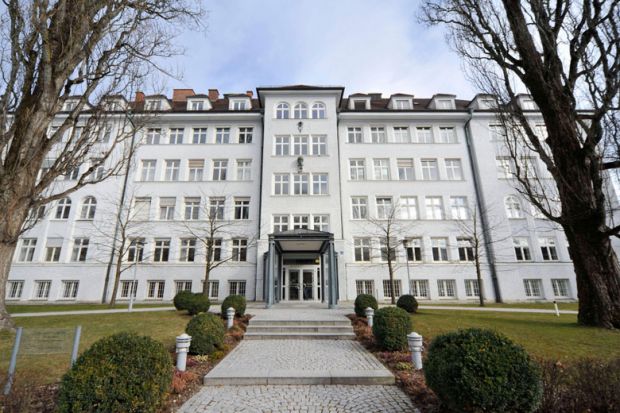The head physician at one of Germany’s leading research institutes has been fired after years of negative headlines and allegations of wrongdoing.
Martin Keck was dismissed as director of the Munich-based Max Planck Institute of Psychiatry’s hospital on 26 July.
A spokeswoman for the Max Planck Society confirmed that it had “terminated its employment relationship” with Professor Keck on that date, although she added that “at this stage” the organisation was “unable to comment further”.
While it is not clear what led to his dismissal, Professor Keck, a decorated expert in depression and burnout who led a hospital that dealt with about 2,000 patients a day, had been at the centre of several controversies since his appointment to the post in 2014.
During his tenure, a number of long-standing staff left the institute, blaming his leadership style, the Süddeutsche Zeitung reported.
He has been accused of using public funds to bolster his private business at the institute. This has led to an investigation both by an accounting firm hired by the Max Planck Society and by Munich’s public prosecutor, according to the newspaper.
The prosecutor confirmed to Times Higher Education that in February 2017 it searched the institute and Professor Keck’s home. More than 850 patient files and more than 1,000 invoices were seized, according to a statement from the office, although the investigation is still continuing.
Professor Keck, in common with a number of senior figures in Germany, has also been accused of plagiarism in his habilitation thesis – a kind of second doctorate. Germany’s VroniPlag website, which scans the work of prominent individuals, found evidence of plagiarism on a large minority of pages in his dissertation, and he was accused of copying passages from another doctoral thesis.
But in 2017, an investigation by LMU Munich, which awarded the qualification, cleared him of “conscious” or “grossly negligent” plagiarism. Professor Keck argued that he had simply used passages from a doctoral thesis that described the results of work that he had led, according to a report by Der Tagesspiegel. Asked for the original judgement, a spokeswoman for LMU said that the university was “not in a position to make the original judgement…available”.
Professor Keck did not respond to a request for comment from THE. He told Süddeutsche Zeitung that he would not comment because he had not been given reasons for his dismissal.
Register to continue
Why register?
- Registration is free and only takes a moment
- Once registered, you can read 3 articles a month
- Sign up for our newsletter
Subscribe
Or subscribe for unlimited access to:
- Unlimited access to news, views, insights & reviews
- Digital editions
- Digital access to THE’s university and college rankings analysis
Already registered or a current subscriber?








